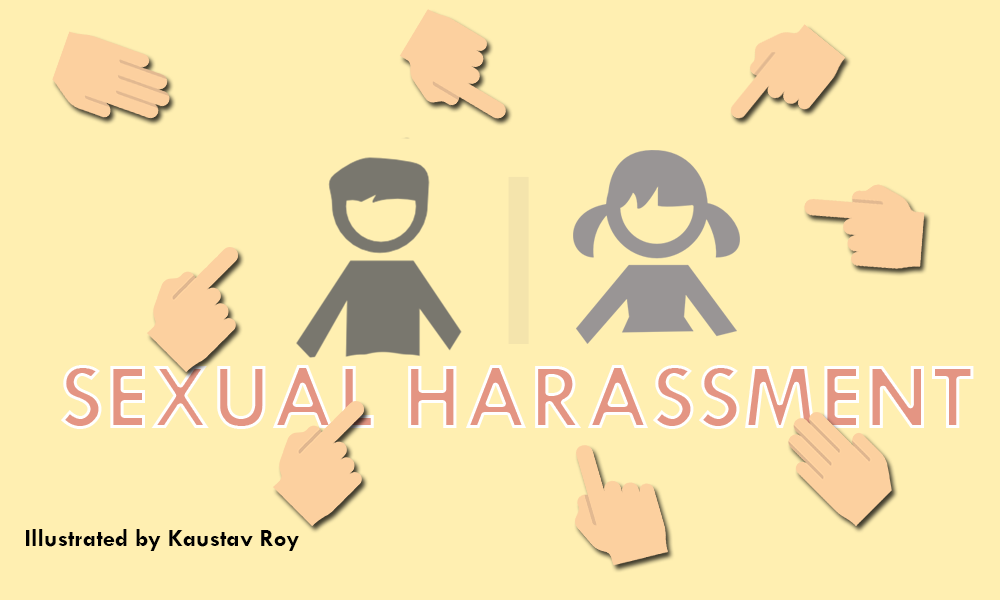A student-initiative recorded 20 per cent higher cases of sexual harassment on campus that go un-reported by the internal complaints committee of colleges.
Bangalore, April 11, 2018: A study conducted by Radio in Purse (RIP) a student initiative that collects stories of sexual harassment of students across colleges reported that 235 colleges do not have an internal complaints committee among which are eight Bangalore University colleges.
An initiative by Maraa, a Bangalore-based media and art collective, RIP collects their stories in a purse similar to the ‘radio in the backpack’ concept used by community radios in conflict zones.
Angarika Guha, member of RIP said. “Sexual harassment could be in any form not just physical. It could happen in the class or outside it. It could happen with a girl or a boy. By a teacher or by a student. Tapping on such stories is the need of the hour. A lot of students feel censored to talk about sexual violence, so bringing out such stories is important to address them already.”
Riya Sharma, a student, said, “Last year, Raya Sarkar, the South East Asian student who compiled a list of sexual offenders in academic institutions, was like an eye opener and talking about such a topic was important in institutions.”
In 2015, the University Grants Commission (Prevention, Prohibition and Redressal of Sexual Harassment of women and students in higher educational Institutions) Regulations 2015 describes the guidelines to be taken up by the higher institutions to prevent sexual harassment at workplace. The nature of these regulations is statutory in nature and colleges have to abide by it.
The guidelines of the UGC state, “Every college should have an internal complaints committee established with the help of functional committee members that include students and teachers to address sexual violence in colleges.’
A Bangalore University professor who chose to be anonymous said, “Bangalore University has an internal committee SPARSH & GD (the sensitization prevention and redressal of sexual harassment and gender discrimination) which extends support to all teachers, staff and students. We have election of the committee head and we see to it UGC guidelines are being followed to.”
He added, “Even if the college is aided or un-aided, private or government, we have same guidelines for all BU affiliated colleges.”
Sakshi Pradhan, a student, St. Joseph’s College, said, “There are no gender sensitization programs running in any of the colleges. Every notice board inside the college should have contact numbers of the committee members they can reach out to.”
Arpita K, student from Government College, said, “We did not even know what sexual harassment meant, if someone would touch us in certain way we did not know how to address it. Mainly, we are not aware of the law; at least we should have people whom we can trust and share with.
Last year in June, the UGC notified new gender neutral regulations on sexual harassment prevention.
Kishore, law student, said, “We have a complaints committee set up but where are the teachers and the coordinators for this? Only women don’t face this problem, shouldn’t the committees also address issues related to men?”
He added, “If a man expresses that he was sexually assaulted, people ask for evidence. Now at that moment do I get CCTV or pen camera to record? At least with a committee we have a witness and someone who we can keep in loop.”
Reina Chettri, a practising psychologist, said, “When I listen to women in groups talking about sexual harassment or eve teasing, every woman has one or the other experience related to it. So women and students in colleges and institutes have been dwelling on this for quite some time and happen with teachers, students and even non-teaching staff.”
Adding to how this can be addressed, she said, “People need to vent this disastrous experience immediately as it can have a lot of repercussions like suicide and depression. Colleges must and should have a cell which addresses and listens to students.”




